This article was last updated on December 21, 2020
What are the best international banks for expats? That will be the topic of today’s article.
In a previous article I reviewed HSBC and Standard Bank. In those articles I mentioned that many of these firms rely on brand name, and are better for banking rather than investments.
Are all bigger banks the same for expats? In this article, I will review some of the other banks which are used for wealth management and banking solutions, alongside some of the online challenger banks.
These include banks more focusing on current accounts, through to those using platforms and other wealth management solutions. Some of them offer better solutions than others.
This article is long. So for the time poor or anybody that has any questions please email me at advice@adamfayed.com
Swissquote Review

Swiss Quote is different to some of the firms below. Even though they are a banking group, they specialize in relatively low-cost trading and investments.
Giving access to stocks, commodities, robo-advisory and many other areas, they are still regulated from Switzerland and Malta in the case of Swissquote Financial Services Malta Limited.
The range of services on offer also include:
- An investment platform
- FX
- Credit Solutions
Swiss Quote is a trading platform, more than a traditional bank. Even though it was started in Switzerland, they have an arm in the UK, and the UAE.
The positives are
- The costs are reasonable
- The app is good in terms of technology
- Well regulated from Switzerland
The negatives are
- They don’t provide advice if you are looking for an advisor
- Even though the costs are reasonable, they aren’t always super-low. For example, making trades can cost up to $50 each time. Funds cost 0.50% per year. Custody fees are charged at 0.375% every 3 months. Considering that many advisors have an all-in cost of 1%, this isn’t overly cheap
- A Switzerland withholding tax can apply – up to 35%.
- Switzerland has lost a lot of its appeal as a banking-hub in the last 10 years.
Despite these negative, this is one of the better options in the market.
Lloyds International Review

Lloyds is a bank from the UK. Lloyds International is the international-arm of the firm. Lloyds International bank accounts are based in Isle of Man or Gibraltar.
They mainly focus on bank accounts, investments and money transfers.
The range of services on offer includes:
- Bank accounts
- Money transfers
- Investments
- Savings and current accounts
The positives are:
- For pure bank accounts, they aren’t bad. FX fees are around 3% which isn’t cheap compared to online brokers, but is normal for banks using Visa and MasterCard
- They have accounts in multiple currencies but this does add fees onto the service
- They don’t charge for sending and receiving money transfers.
- Lloyds online share dealings is OK.
The negatives are
- They aren’t a good-value option for most investment funds
- The minimum investments are high at 500,000GBP
- They have been known to prevent clients from switching accounts and have many rules that don’t make sense.
- Interest-rate fixed deposit accounts are low-interest paying – around 1% per year.
Santander International Review
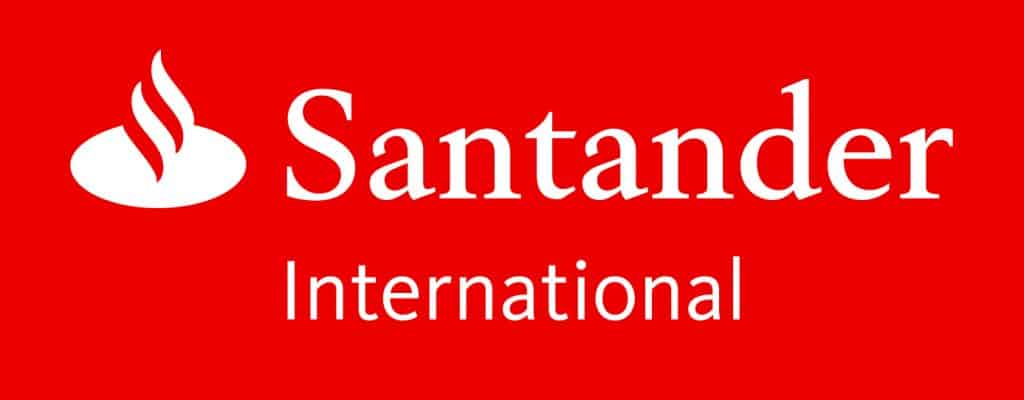
Originally started in Spain as Banco Santander group, Santander International is the international arm of Santander Bank. They are based in the Channel Islands and Isle of Man.
The range of services on offer includes:
- Corporate solutions like corporate banking
- Foreign exchange
- Investments
The positives are
- Decent corporate solutions for businesses that are registered out of the Isle of Man
- The online system is OK
- The bank accounts are reasonable value, with three currencies available including Euros, USD and GBP.
- Competitive mortgage rates for Isle of Man residents
The negatives are
- Just like most other banks, the savings accounts on offer (called Notice Accounts, Fixed Deposit and Gold Bank account) don’t offer high rates of returns. Even the fixed deposits pay only 1.5% per year….on balances above one million GBP and less on smaller accounts!
- The investment products are expensive and focus on their own products.
- On the FX side, there are much cheaper options these days, including online brokers, which I will review below.
Barclays International Review

Barclays is a British Bank with a HQ in London. The banking solutions are offered in the UK, Jersey and Isle of Man.
The range of services on offer includes:
- Multi-currency accounts from 25,000GBP or more.
- Forex service
- International savings account which pay out 0.25% on average per year interest
- International Investment Advisor services for customers with 100,000GBP or more
- UK mortgages
The positives about Barclays is:
- They have a decent global footprint, although these days the internet makes that less of a value-added – you don’t need physical branches anymore.
- Their bank accounts aren’t bad if you are just using them for pure banking service rather than for investing as well.
- The rates on their mortgages are competitive. Just like the other options though, it can pay to shop around.
The main negatives are:
- The investment products are expensive
- The interest rates offered are low – below inflation in fact.
- 25,000GBP minimums are a lot on the banking side. Ideally, you want the minimums to be lower, because bank rates don’t pay you anything above inflation. If you fall below the minimum, 20GBP a month is charged.
- They offer mortgages for the UK market – meaning expats can buy in the UK. They don’t offer mortgages for the international market though.
- Barclays International and Barclays UK are quite different operations. Many UK customers switch when they move abroad not knowing that fact.
- The mobile banking is currently only available on UK Pound Sterling deposits
- Some opaque investments are on offer, which seldom works out for the investor. For example, a lot of the structured notes they offer have hidden risks.
- Barclays International Wealth accounts aren’t overly competitive and the costs, indirect and direct, can be high.
Nedbank Private Wealth Review
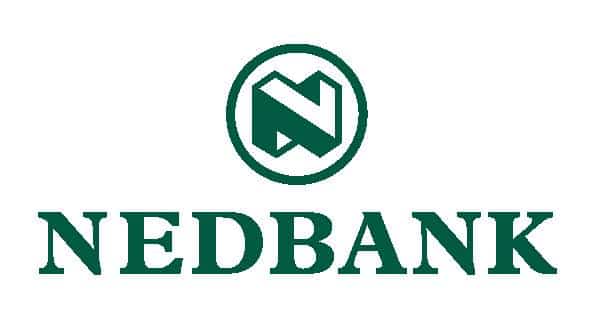
Nedbank Private Wealth is based in South Africa, with various offshoots around the world. They have been listed on the South African Stock Market since 1969.
The range of services on offer includes:
- Wealth management
- Banking services
- Lending solutions
- Fixed deposits
They split their offerings into NedBank Capital, NedBank Corporate, NedBank Retail and Nedbank Wealth.
So they deal with people’s needs from lending to wealth management.
The majority of Nedbank’s clients are in the Southern Part of Africa.
The positives are:
- Good for banking
- The level of service is said to be good
- They can help set up trusts, and other structures, which helps you with succession plan options if you die and want to leave some money to your kids.
- Decent company formation services
- They do have low-cost options on the investment side.
- Transparent cost structures
- Good app
The negatives are:
- They aren’t really focused on smaller and medium-sized clients
- In theory, having all of these options under the same roof, should be a good thing. In general though, having your investments, loans, company formation and everything in between with one bank doesn’t make sense.
- They can become much more expensive for active and more frequent traders.
- With the exception of pensions, there are not any tax concessions, in countless countries.
Saxo Bank – Saxo Capital Markets Review
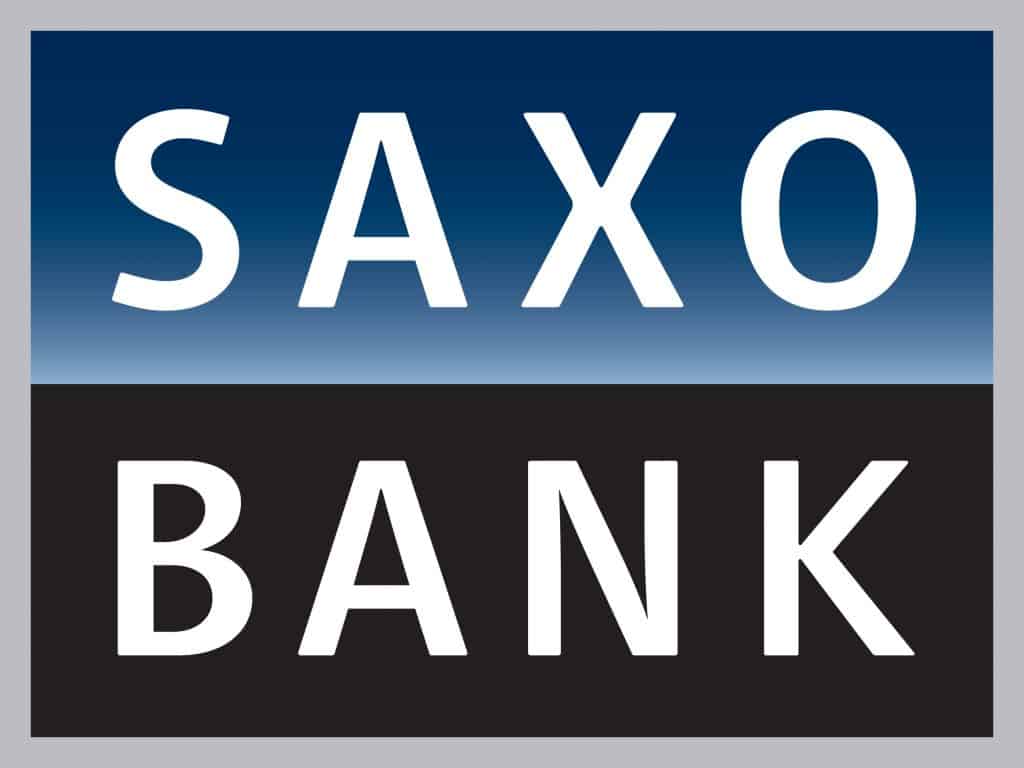
Based in Denmark, Saxo Capital Markets is the capital-arm of Saxo Bank.
Saxo Bank is quite different to the other banks on this list apart from Swissquote, in that they offer a low-cost platform to investors.
This tends to focus on all the funds, ETFs and shares available on the market, rather than their own internal products.
The main positives with Saxo Bank is:
- It is a low-cost platform with good access to a range of funds
- The technology with the SaxoTraderGo app and Saxo Trader is good.
- Minimum investments are just $10,000
- Overall the investments are much better than the other banking options reviewed here. That is because this is more of an independent platform, rather than a banking platform. It is merely offered by a bank with a separate platform. They don’t focus on selling their own products, or expensive investments, unlike some of the other options discussed here.
- For investors with the time, knowledge and self-control, therefore, this is a good option.
The main negatives with Saxo Bank are:
- The EU-regulation is both a positive and a negative. With new EU rules coming out on a regular basis, including some which affect investors, new changes and costs can always come into the market.
- It isn’t available to people in numerous countries – not just the US but some other countries as well. These rules are always changing as well
- There is no access to professional advice. It is merely a DIY platform.
- Like other DIY platforms, many people struggle with the “behavioral gap”. In other words, is going to a gym good? Of course, it is good for your health, but what is more important is how often you use it and how you use it – your technique and so on. Let’s face it, most people give up on the gym! The same with investment platforms – if you are investing for yourself your results won’t depend on the platform but your own behavior and self-control.
- The evidence suggests that the average DIY investor trail the market because they tend to panic when markets are going down and get too excited when they are rising:
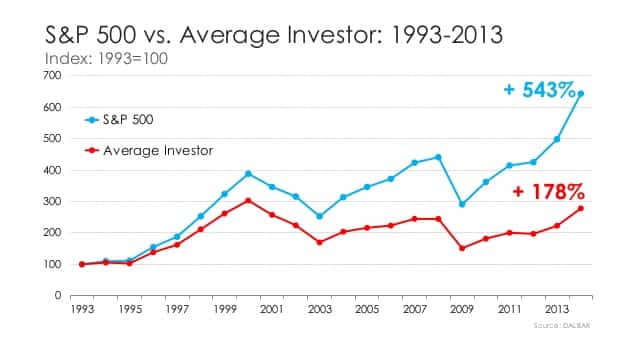
TBC Bank (Georgia) Review
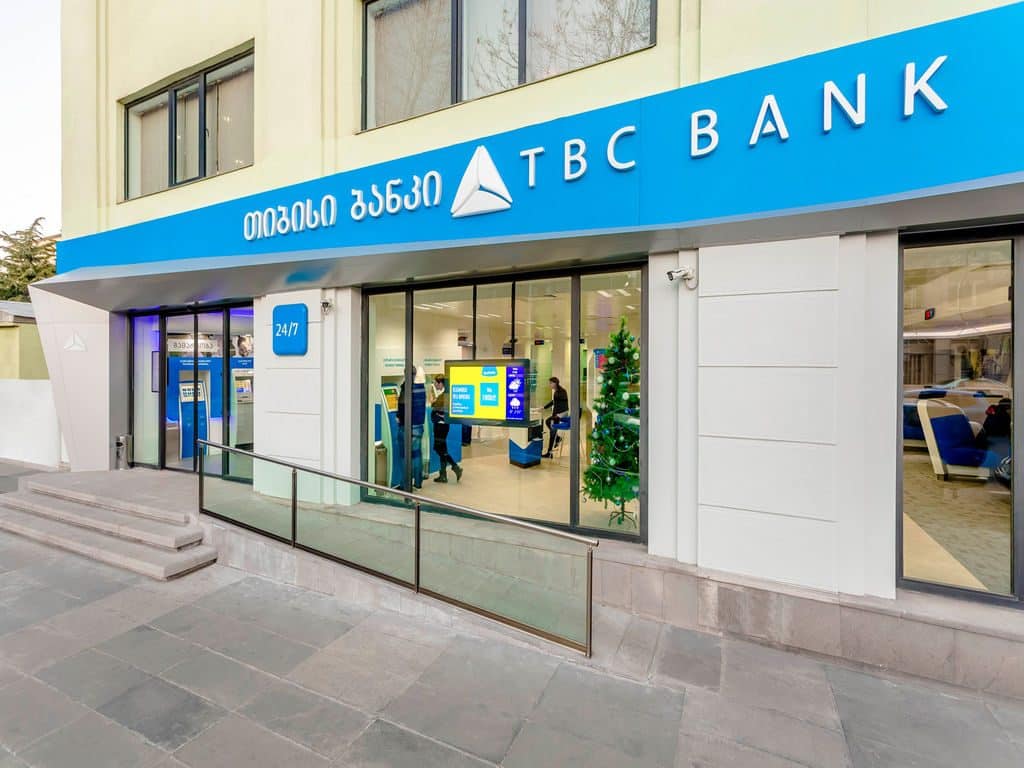
For the more adventurous types, Georgia is increasing becoming a big offshore banking hub, for expats and locals alike.
In general, however, TBC bank is being used as a pure banking option, for people that need a quick result.
You can get a bank account at TBC within a few days or even hours, if you are on the ground on Georgia, even if you are on a tourist visa.
This only applies for personal accounts and not offshore company accounts, which requires more due diligence.
I have met a few expats that have needed banking quickly, due to emergencies such as their account being closed down for numerous reasons.
This isn’t a bad option for some people, but isn’t a solution for those wanting quality investments or bank accounts without in-person visits.
The video below reviews how easy the process is:
Frequently asked questions (FAQs)
In this section I will answer some FAQs
What are some of the biggest mistakes people make with banking solutions?
The biggest mistakes I have seen in the market is:
- Being reassured by size. Often if a bank is bigger, it just means you are a number. “Big” doesn’t mean safe. Almost every offshore bank has good checks and balanced these days, such as a segregated account system if there is a financial crisis.
- Wanting banking and investments in the same house. It is usually more expensive
- Leaving money in cash – and not investing it and therefore losing to inflation. The path of least resistance often leads to procrastination.
- Focusing on what is familiar. Preferring a British bank if you are a British expat, a German bank if you are a German expat, and so on.
- Focusing on just local solutions. It is better for expats to have international banking, especially because people are moving around more these days. The days of the “career expat” are largely gone, so more expats need to move around every 2-3 years to retain package benefit levels. So having new local banks every time you move isn’t ideal.
Are there any other banking options apart from those mentioned in this article?
Of course. This article isn’t long enough to cover all options available in the market.
Other options include NatWest, BDS Treasures and Capital Security Bank are just a few additional options.
For pure banking (not investing) there are also now many “nomad banks” that service people that don’t have a full-time home.
Examples include Monito and N26.
What about for American expats and locals?
In general, for American expats, offshore banking isn’t always a solution due to laws coming from the US.
I have previously spoken about that issue on this article. It is a misconception that this only affects investments – some banks refuse American clients for even bank accounts now.
Locals can often apply for overseas banking, but this depends on the location and the bank.
Do all banks now have 24/7 online access?
Pretty much all banks do offer this service, with 1-2 small exceptions. The main difference tends to be how quickly banks update the valuations.
Some do it instantly (at least on the available balance side) whilst others take a day to update.
How about local banks?
Of course, there are more than 190 countries in the world, so we don’t have time to review them all.
In general, most banks in developing countries have less access to good investments and weaker investment protections.
In places such as Hong Kong, Singapore and Tokyo, you have better investor protections but lower interest rates.
I heard that interest rates are higher in developing countries – is this true?
As a generalization it is, however, remember:
- There is no such thing as a free lunch
- If it is such a great idea, why isn’t George Soros, Warren Buffett and all the trillions of dollars of institutional money looking to sell out of instruments like index funds and other investments and putting their money into an emerging market bank?
- There is currency risk. For example, Argentina, Brazil and South Africa has very high interest rates. All of these places have significant risks, as we have seen with recent deviations
- Even in the few countries with high-USD interest rates (Cambodia and Georgia for example) you are still likely to get less than through long-term investing and investor protections are low. If there is a global financial crisis. I doubt these governments would bail you out!
Is it true that offshore banks can close down your accounts easily?
Yes, this can happen. The main risk is when you move from country A to B.
I personally know aexpat who moved to Myanmar/Burma from Thailand and after informing his bank, he was told that he has “60 days to find another bank as they don’t accept for Myanmar”.
Of course, they gave him his money back, but they refused to service him.
It is best to ask your bank, therefore, before moving to another country, if they will still be able to service you.
Do banks need physical application forms to be sent?
Unfortunately, unlike many pure investment platforms that accept online applications, most of the banks mentioned here do require wet signatures.
This is one of the huge downsides of expat banking. I have known it to takes months for accounts to be open, unless the client is already banking with their UK-arm.
What are some great digital options for expat banking?
If you want to keep banking and investments separate as per my suggestion, some challenger banks like Revolut are excellent for pure banking transactions.
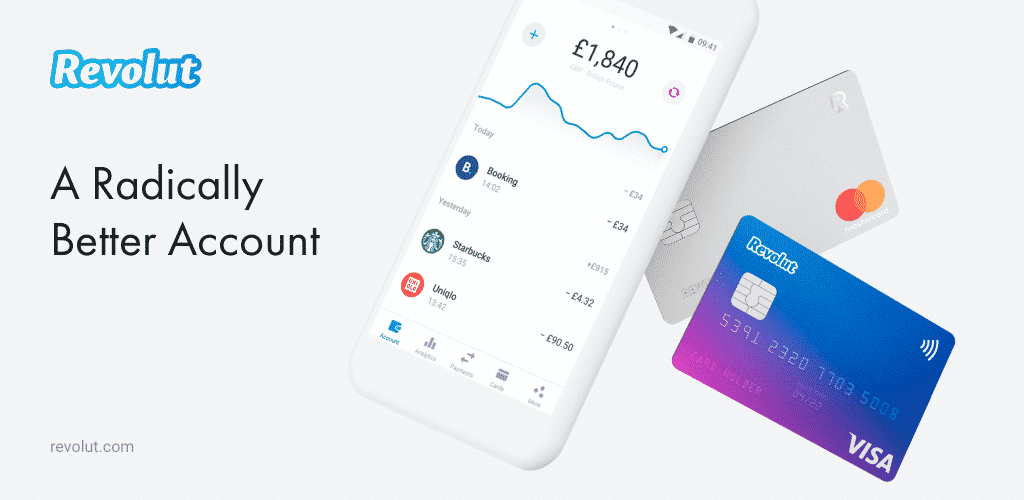
The benefits of this options are
- A full bank account, rather than a pure transfer service.
- Saving 3%-5% on FX rates
- Any residents in the EEA and Switzerland can open up an account
- Opening the account is really easy. All you need to do is download the app and fill in the application form
- There is an “Amazon like charging structure”. A free version or annual subscription to Revolut Premium
- Even with the free accounts, you get free bank transfers in up to 26 countries and 200GBP worth of free ATM withdrawals every year.
- The premium part of the app gives you access to Bitcoin and some other features.
- Excellent bank for international transfers
- New Metal Account which offers 1% cash back, including on cryptocurrencies. This account gives you the option to withdraw up to 600GBP abroad every month.
They do have other services such as overseas medical insurance, phone insurance and Apple Pay, but their main USB is their bank accounts.
How about on the ultra-high-net wealth (UHNW) spectrum?
Some of the banks that are most used in the UHNW market include:
- DBS in Singapore –one of the larger banks in Singapore, they have numerous options for expats. They offer access to 13 currencies and offer up to 3.8% on your savings.
- KEB Hana – they have a big presence in Indonesia, South Korea and Vietnam
- Credit Suisse – The big negative about this bank is that many of the accounts they offer, are only in Euros or CHF.
- Julius Baer – this bank also has a big presence in Singapore and Switzerland. They have also set up partnerships with numerous advisory firms across the region.
- Singapore Bank – for expats based in Singapore, they aren’t a bad option for banking, as opposed to wealth management.
In general, some of the Swiss banks seem to be living off past glories.
It is getting harder and harder to open up expat accounts, and get good service.
Some of the Singapore banks are excellent, but it isn’t always easy to open up the accounts, and the minimums can be very high, even for ordinary bank accounts.
On the wealth management side, it isn’t easy to beat lower-cost options, even for UHNW individuals.
All private banks, to a certain extent, are living off brand name.
How about alternatives to banks for international transfers?
Transferwise and Monzo, just like Revolut, are challenging the traditional banks when it comes to international transfers.
Transferwise is a bit different in that it is an online currency transfer company, as opposed to a bank.
To give you an idea about their competitiveness, Transferwise’s fees are currently:
- 0.35%-2.85% on currency spreads
- 65p fixed fee to send money, but this depends on the currency and the country where you live.
- The fees for every country are transparent
I have used Transferwise once or twice in Japan, and have found the speed, service and fees to be excellent.
The biggest negative about these newer banks is they often can’t be used to fund an investment account.
In other words, unlike an actual digital bank like Revolut which can be used to fund an investment account, many investment platforms won’t accept transfers via the likes of TransferWise.
Transferwise, moreover, is only supported in terms of receiving money in 71 countries, with only 43 countries allowing people to transfer using this service.
Monzo is more similar to Revolut, in that it offers a full current account, but they do also offer international transfers.
Do you provide private banking?
Private banking isn’t my main service. My main services are wealth management. I do, however, help clients with it, if requested, with banking solutions.
In other words, banking is a value-added to existing clients.
Conclusion
Most of the private banks reviewed are decent on the banking side, but weak on the investing side, with 1-2 exceptions mentioned above.
For investments, most private banks prefer to sell their own products and often over-charge – 2% per year or more.
The biggest reasons why customers use private banks is the feeling of safety or the convenience of having banking and investments under one roof.
It makes sense to have banking and investments as individual services, and not combined.
When it comes to pure banking services such as transfers, some of the newer online banks and currency firms, offer much better exchange rates.
Further Reading
For another review of a popular private banking option widely sold in the expat market, check out this article below.



